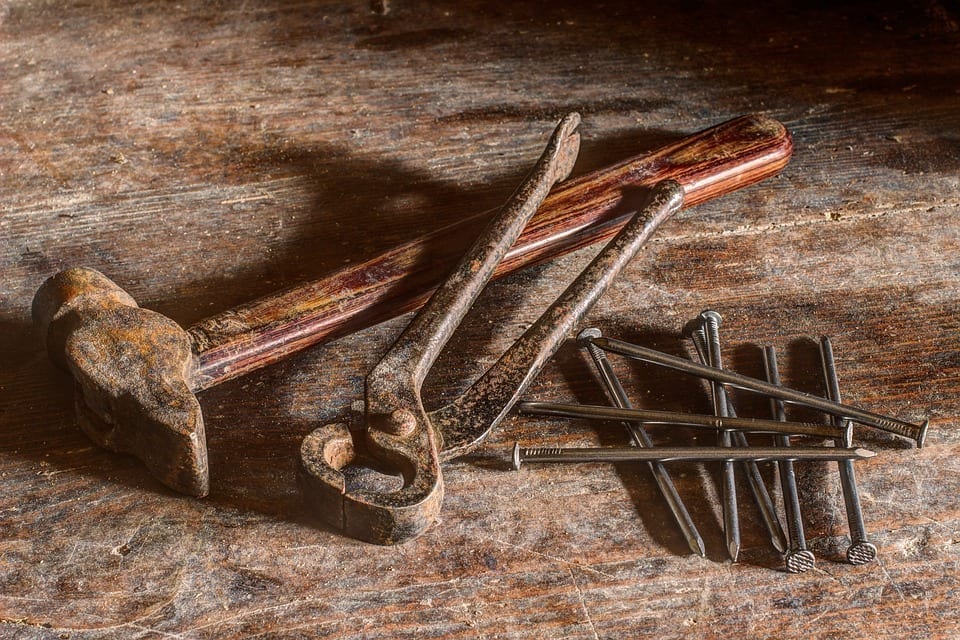Do you really own what you buy? If you own something, you should be able to do pretty much anything you want to do with it, like repair it, sell it, or set it on fire (safely and legally, of course). It’s that first one that we’ll consider at here. Some items, such as clothing or older cars, you can repair yourself (or have your agent do so). Others, such as iPhones, are practically impossible. Certain manufacturers have a monopoly on fixing items they manufacture and sell. Currently, eight states are considering right-to-repair legislation that would require electronics manufacturers to make spare parts and manuals available to repair shops and the public. Right-to-repair bills are part of a larger trend towards self-reliance and do-it-yourself venues such as Maker spaces and repair cafes.
Do you really own what you buy? If you own something, you should be able to do pretty much anything you want to do with it, like repair it, sell it, or set it on fire (safely and legally, of course). It’s that first one that we’ll consider at here. Some items, such as clothing or older cars, you can repair yourself (or have your agent do so). Others, such as iPhones, are practically impossible. Certain manufacturers have a monopoly on fixing items they manufacture and sell. Currently, eight states are considering right-to-repair legislation that would require electronics manufacturers to make spare parts and manuals available to repair shops and the public. Right-to-repair bills are part of a larger trend towards self-reliance and do-it-yourself venues such as Maker spaces and repair cafes.
Let’s take a step back for a moment, because this issue touches a lot of other issues. For example, raising the minimum wage. How so? Although many people believe raising the minimum wage would kill business, Bill Phelps, CEO of Wetzel’s Pretzels, respectfully disagrees. When California raised the minimum wage, Phelps experienced increased business each time. He chalks it up to customers having more money in their pockets to buy things like mall food court pretzels, but it also means that they have more money to buy just about everything else, including consumer electronics. While this benefits manufacturers, throwing broken items away instead of fixing them causes other problems.
More people buying, using, and throwing away more things causes economic growth. Perversely, even throwing things away boosts GDP, since trash hauling companies and dumps make money. All of this economic throughput creates more jobs for more people, but growth comes at great ecological cost. Remember Fresh Kills in New York, the largest landfill in the world? Between 1948 and 1996, New Yorkers tossed 150 million tons of garbage into what had been coastal marshland on Staten Island. At its peak, that meant 30,000 tons of trash every day: plastic wrappers, spoiled food, broken electronics. This is exactly the kind of stuff that people buy more of when they have more money. Economic growth, made manifest, lies under today’s Freshkills Park.
Repair cafes take a big, positive step towards keeping broken items out of landfills. A movement that began in Amsterdam, repair cafes have spread slowly but surely across many countries. Skilled volunteers meet in donated locations, such as libraries or churches, and attempt to fix broken things for the public. Repair cafes generally do not charge for their services, but they accept tips to buy lunch for the volunteers. Grateful people who end up not needing new vacuums, for example, may leave significant tips.
Kingston Repair Cafe gives broken items new life, by Innovation Trail
Some socially conscious companies have taken a page from this book, too. Clothing company Patagonia, for example, recently began taking back used, damaged goods traded in by customers for repair. Patagonia then re-sells the refurbished gear, sharing the income with the original customer.
Right-to-repair legislation would open up new opportunities for independent businesses and repair cafes alike, not to mention owners of broken electronics. Therein lies the rub. Paying attention to both sides of the balance sheet means acknowledging the official repair technicians that would be put out of work by cheaper alternatives. Those whose jobs are undercut may find themselves in need of an increased minimum wage to support their families. At the same time, indie fixers, makers, and volunteers at repair cafes serve as part of the “sharing economy.” Sharing economy jobs usually lack the kind of security and benefits that come with employment at firms. In a kind of feedback loop, this means that more people would need cheaper alternatives to licensed repair options, a perfect fit for more repair cafes.
So, are repair cafes and right-to-repair legislation bad for the economy? It depends who you ask. They’re great for consumers, who would have far more repair options to them, and they’re much better for the environment. Simultaneously, they’re bad for companies like Apple and for the Apple employees that would have fixed your iPhone, or made you a new one. Since most people are both employees and consumers, it’s hard to say if it’s a good or bad deal for the economy. We need to decide who the economy is supposed to benefit: people or corporations. And we would all live in the cleaner environment that comes from keeping electronics and other trash out of landfills.

Related: Planned Obsolescence: A double-edged sword


Join the conversation!